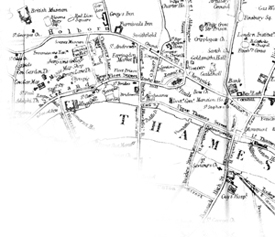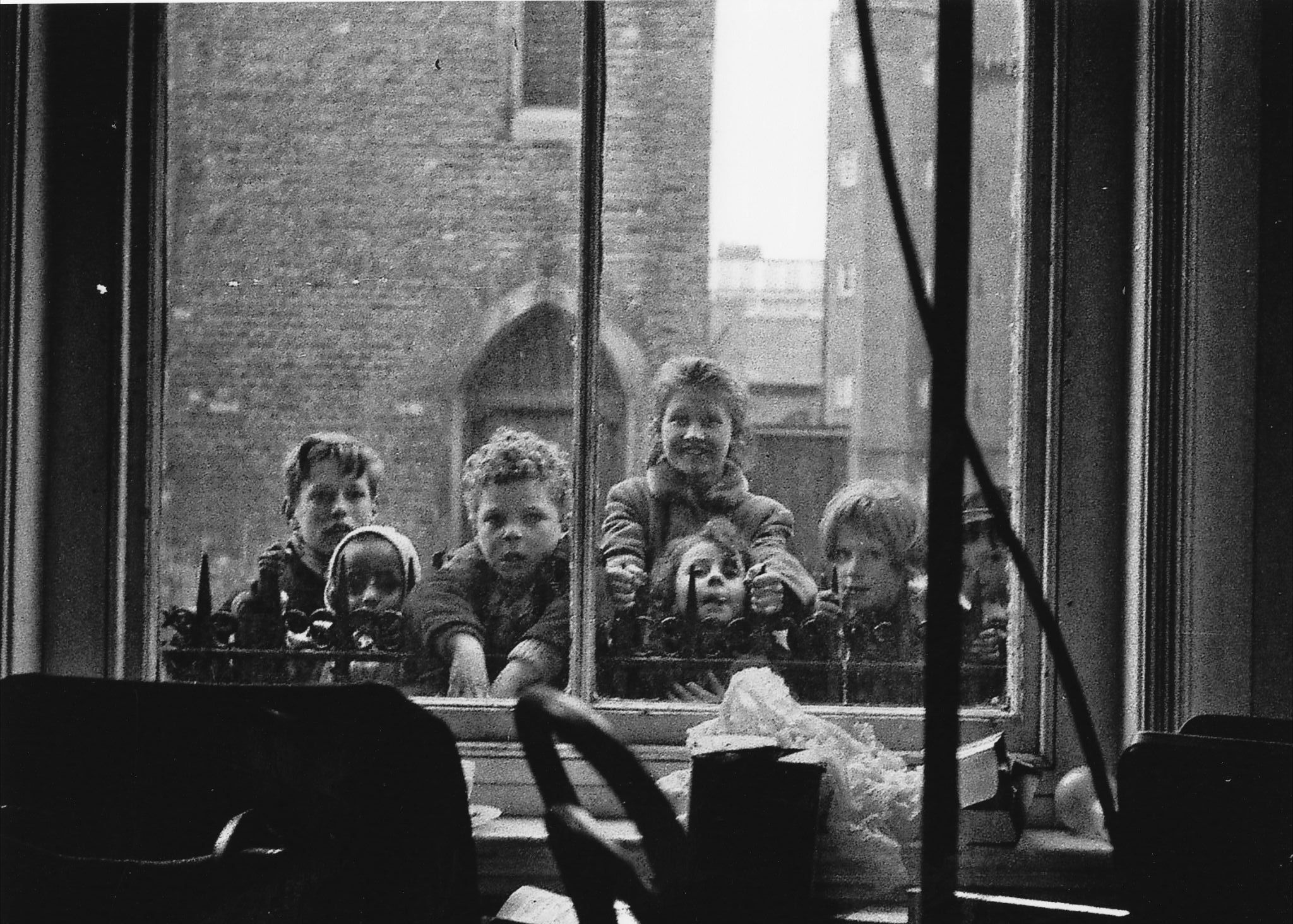Shortlisted for the Wellcome Book Prize
‘Ms Wise delves deeply into her unsettling subject, finding bizarre humour in it as well as tragedy. A specialist in the sociology of Victorian low life, she extracts richly detailed material from the archives and animates it with great narrative flair. These skills won well-deserved praise for her two previous books: The Italian Boy, about a case of murder and grave robbery in the 1830s; and The Blackest Streets, about life in a London slum called the Old Nichol. This gripping study of the Victorian madhouse continues the investigation, and sends some shivers up the reader’s spine along the way.’
Charles Nicholl, Wall Street Journal
‘The great gift of Sarah Wise’s excellent Inconvenient People is to blow apart the myth that the most likely victim of the lunacy laws was a married woman. . . If much of Inconvenient People reads like a mood book through which Wilkie Collins might have flipped if stuck for inspiration, there are moments of high farce too. Wise is flexible enough in her narrative register to make it all right to find this very funny indeed.’
Kathryn Hughes, The Guardian
‘Deeply researched and gripping. . .The book owes its enormous power to Sarah Wise’s patience. She has sifted through hundreds of case histories. . .It makes for harrowing reading, but much of it is also hilarious.’
A N Wilson, Mail on Sunday
‘Wise has a wonderful series of gothic tales to tell. . . She is the first to draw them together into a broader portrait of the fraught relations between Victorian mad-doctors and at least some of their patients. Moreover, she has worked diligently in the archives to uncover fresh details that make the curious characters that populate her pages come to life. Hers may be popular history, but it rests on a good deal of original and careful research.’
Andrew Scull, Times Literary Supplement
‘After these cheerful late cases comes a devastating epilogue. . .you put this quite superlative book down, shaken.’
Edward Pearce, The Independent
‘Sarah Wise is an excellent writer, and those who pick up this book
will not lightly put it down. Her ten chapters read like short novels, and she has the true social historian’s ability to make her period
come alive. She selects and compresses the salient details
beautifully; one often feels as if one is actually present at the
scenes she describes. There can be no higher praise. . . Inconvenient
People is as interesting a work of social history as you are ever
likely to read.’
Anthony Daniels, The Spectator
‘Wise has given us a fascinating book that teems with rich archival research. The pictorial sources are an added boon and make for a wonderfully illustrated addition to the history of the 19th century.’
Lisa Appignanesi, Daily Telegraph
‘. . . fascinating. . .Sarah Wise has used her subject like an axe, to split open the Victorian façade and examine everything wriggling behind. It has enough tragedy, comedy, farce and horror to fill a dozen fat novels, and enough bizarre characters to people them.’
Suzi Feay, Financial Times
‘Trenchant and disturbing.’
Professor John Carey, Sunday Times
‘...a well written, carefully researched account of 19th-century England’s struggles to define, determine the causes of and treat mental illness... Inconvenient People is more than a history of psychiatry in the Victorian Age. It contains important lessons for those who seek to understand where we have been and where we are going in the effort to balance personal autonomy with society’s obligations to help those who cannot help themselves.’
Ronald Schouten, professor of psychiatry, Harvard Medical School, Washington Independent Review of Books
‘. . .[an] extraordinary psychosocial history. . .Wise keenly points
out that “this ‘progress’ had gone hand in hand with what, to many,
seemed to be the pathologising of perfectly ordinary human weirdness.
. .How safe was anyone when the experts had such divergent views of
insanity?” Wise’s meticulously researched study adds a fresh
perspective to current scholarship on insanity and offers a chilling
reminder of the stubborn unchangeability of many aspects of the lunacy
issue.’
Publishers Weekly (USA)
‘There is so much to interest and entertain in this book, which is enhanced by over eighty informative illustrations.’
Gillian Tindall, Literary Review
‘What works particularly well about Wise’s project is her ability to take a substantial body of research and turn it into a piece that is truly fitting for the subject. . .Inconvenient People succeeds in striking a fine balance between narrative elegance and scholarly rigor. Wise is scrupulous in her composition, piecing together personal accounts and historical records, creating vignettes of unfounded lunacy, leaving the reader with striking and memorable images that contradict commonly held notions of madness.’
Kalika Sands, The Oxonian Review, University of Oxford graduate journal
‘Fascinating and chilling, Inconvenient People reads like a series of Victorian novels in brief – only all the tales are true. Each chapter is like a complex costume drama, involving plots, firearms, escapes, pursuits, confrontations, angry crowds, abandonment, terror and despair. Sarah Wise has uncovered some real horror stories. . . Nobody interested in mental health should miss this book.’
Bel Mooney, Daily Mail
‘The ultimate horrific genealogical discovery is of the mad ancestor locked in the attic. . .
In this wonderfully engaging book, Sarah Wise puts us right: men were more likely than women to be incarcerated maliciously by family members. . . As well as being a good read, this book is helpful on the procedures for the declaration of lunacy.’
Jad Adams, Who Do You Think You Are?
‘A rich, gripping and moving mix of social history, psychiatry and storytelling.’
Family Tree magazine
● Shortlisted for the Royal Society of Literature’s Ondaatje Prize 2009
‘There are those writers whose imagination lives and prospers within a certain territory; for them the ground itself is haunted, a terrain upon which the past and present are locked in an embrace like lovers.
So it is for Sarah Wise.... An excellent and intelligent investigation of the realities of urban living... This is a book about the nature of London itself.’
Peter Ackroyd, The Times
‘Scrupulously researched and eye-opening... a revelatory book, tearing the roofs off the Old Nichol’s festering tenements, beaming the light of impartial historical research into the horrible dens and alleys, exposing the blighted lives and the crushing deprivation. But it avoids the voyeurism that books about slums easily fall into. The cruelties it uncovers are not milked for Dickensian pathos, but itemised objectively. They are quite terrible enough without embroidery.’
Professor John Carey, Chief Book Reviewer, The Sunday Times
‘Her achievement is remarkable... Wise misses nothing [and] this breadth and balance lend The Blackest Streets both its scholarly heft and its freshness. Wise is a rigorous historian, but it is her subtle ability to summon the individual to elucidate the whole without ever resorting to stereotype or simplification that makes this book so memorable. As scrupulous as she is sympathetic, she breathes life not only into men and women who sought to understand and resolve the persistent problems of the Nichol, but into the slum-dwellers themselves...This engrossing work shines a light not only on a turbulent period in London’s history but on humanity itself. Only the best histories can claim as much.’
Clare Clark, The Guardian
‘...a brilliant social history... a reminder that our enlightened society was built on an inhumanity only just beyond living memory.’
Robert Peston, Books of the Year, Sunday Telegraph
‘...she is a sure-footed guide. In each strand of inquiry she has something new and surprising to say. . . her gaze is as sharp as we could realistically hope to have.’
Professor Jerry White, Times Literary Supplement
‘Sarah Wise is too clever and considered a historian simply to give us a lurid, one-dimensional Victorian melodrama... Through painstaking archival work and readable empathetic prose, she has instead sought to evoke the texture of life here... Wise is very good at leading the reader to think about contemporary resonances while never stating them.’
Sinclair Mackay, Daily Telegraph
‘The Nichol was the
prototype for every current global urban favela. Read it and be
flabbergasted.’
Veronica Horwell, New Statesman
‘Gripping... lively... she tells a rattling good tale of clergy infighting, literal and metaphorical.’
Professor Michael Wheeler, Church Times
‘Wise has a sure instinct for the period’s public imperatives, private
compromises and for the strangely compelling rhetoric that rose around
the middle classes’ mission to the London poor... This is as good a
piece of social history as anything you’ll read this year.’
Brian Morton, The Tablet
‘Sarah Wise, our most compelling social historian, brings a Victorian
slum within horrifying touch. . .A little masterpiece.’
Edward Pearce, Tribune
‘An enthralling slice of social history.’
Christopher Silvester, Daily Express
‘...a worthy follow-up to The Italian Boy, her highly regarded debut. The author is a brilliant new voice in the history genre.’
Kate Bradley, The Bookseller
‘An exceptional work... both scholarly and page-turning – a genuine treat.’
Gilda O’Neill
‘An affecting history of life in the crowded slums of 19th-century London which traces, with great restraint, the links between poor housing, poverty and criminality.’
The Economist, Books of the Year
‘Outstanding... A note-perfect work of social history, thoroughly researched, charitable in its sympathies.’
Ken Worpole, The Independent
‘The poor have gone elsewhere... I hope someone is documenting their thoughts and experiences in sufficient detail for some future version of Sarah Wise to return them to exuberant life.’
Matthew Sweet, Financial Times
● Winner of the Crime Writers’ Association Gold Dagger for Non-Fiction
● Shortlisted for the 2005 Samuel Johnson Prize for Non-Fiction
‘I wish I had written the Italian Boy, but alas, Sarah Wise got there first, and did so in style... This is an impressive debut and a compelling piece of history writing.’
Bernard Cornwell, Mail on Sunday Books of the Year
‘An amazing book, full of astonishing images... Our studio is in Old Street, and each day I walk through the area she is talking about.’
Neil Tennant, Word magazine
‘Sensitive, meticulous... told with exceptional skill, humour and sympathy.’
Fiona MacCarthy, The New York Review of Books
‘Excellent... an impressively strong sense of 19th-century poverty seems to ooze from its pages and the details are fascinating. This is not a book to read before turning the lights out.’
Toby Clements, The Daily Telegraph
‘A haunting blend of scholarship and period empathy.’
Iain Sinclair, Daily Telegraph, Books of the Year
‘Wise handles her sources with delicacy and rigour... She has achieved something of no little importance...[and] can take credit for the least smug and self-congratulatory book ever written on 19th-century slum life.’
Matthew Sweet, Sunday Times
‘Compelling reading... scrupulous scholarship... Has all the melodrama, plot twists and pathos of Victorian fiction... Wise’s debut, written with flair and plentifully illustrated, is history at its most shamefully entertaining.’
Michael Faber, The Guardian
‘A work of great skill and sympathy...
Shines a great light upon the lives of the very poor. For any student of the city and its secret life, it is indispensable reading.’
Peter Ackroyd, The Times
‘Few writers have unearthed such juicy raw material or made such telling use of it as Sarah Wise in this impressive debut... It is Wise’s contextualisation of the case that makes this book so satisfying.’
Andrew Holgate, Sunday Times paperback review
‘An amazing book... It out-Dickenses Dickens.’
Dr Maria Misra, Samuel Johnson Prize judge, Fellow of Keble College, Oxford
‘She has brilliantly combined a Newgate Calendar spine-tingler with a scholarly account of the London poor... It is exceptionally well organised, rich in data and hard to put down.’
Edward Pearce, The Glasgow Herald
‘The Italian Boy is as packed with interesting facts as an overcrowded graveyard, and rich with sprightly, evocative, historical character sketches... A sound combination of solid fact and imaginative flair.’
Rachel Holmes, BBC History Magazine

